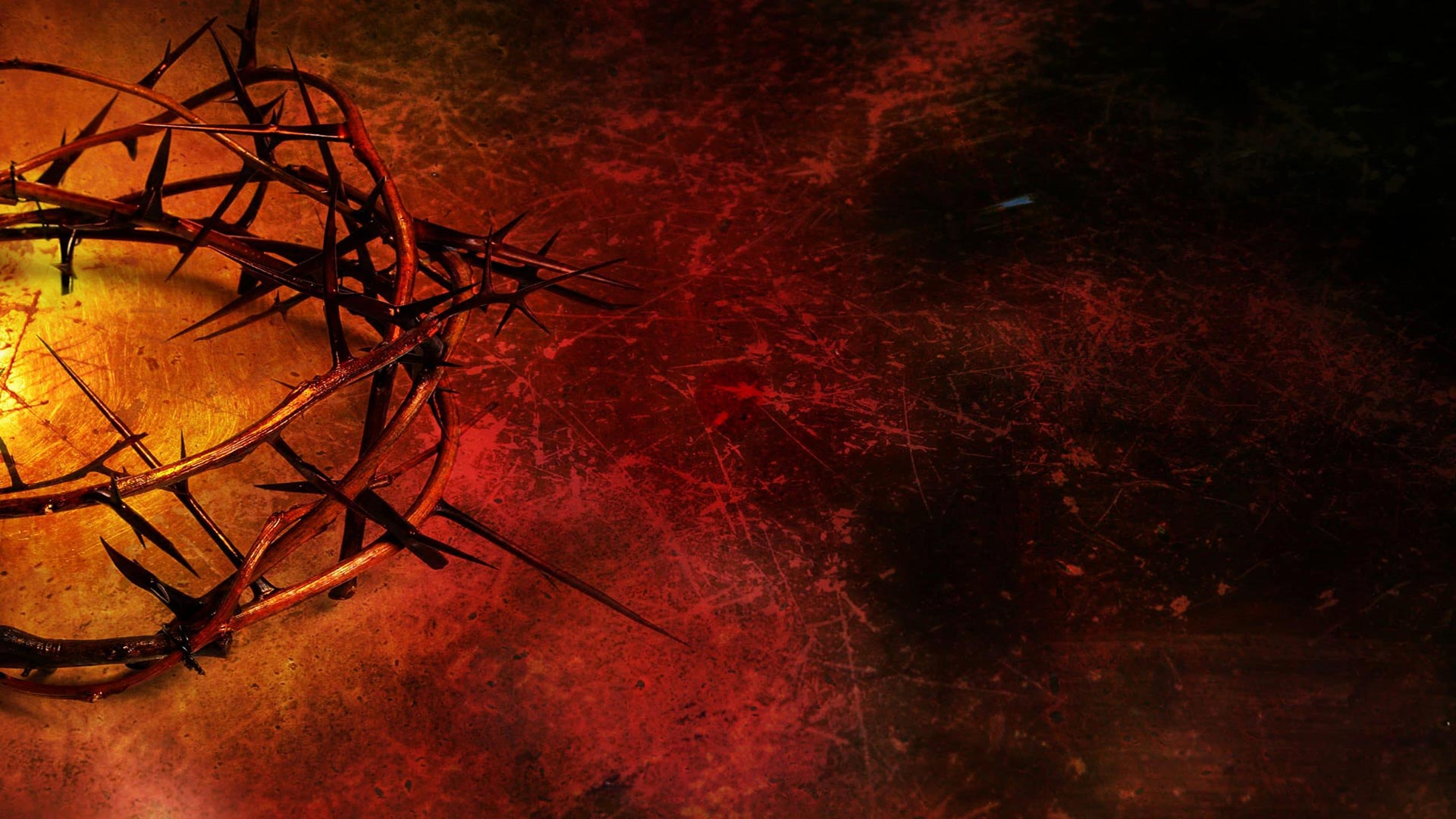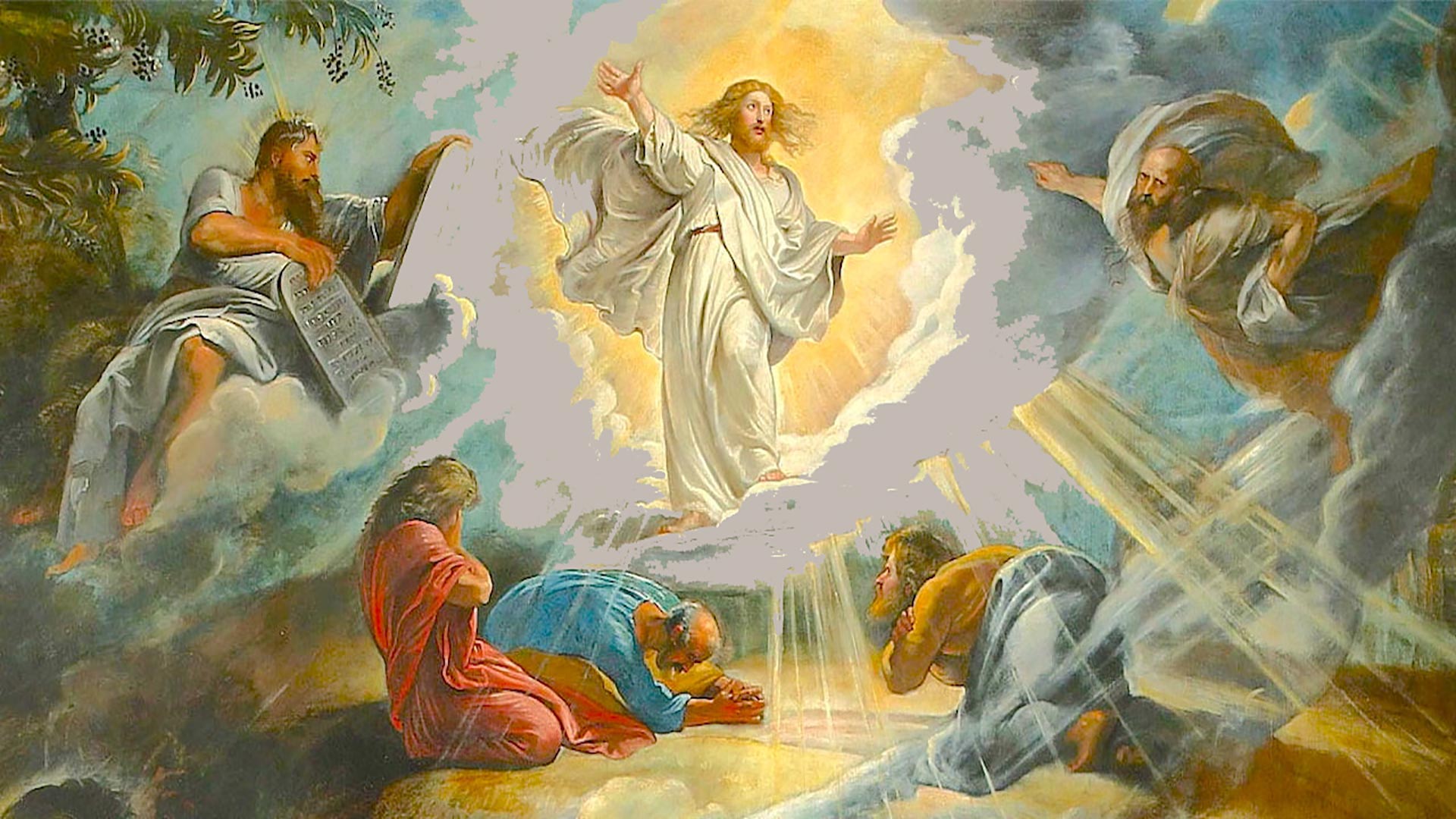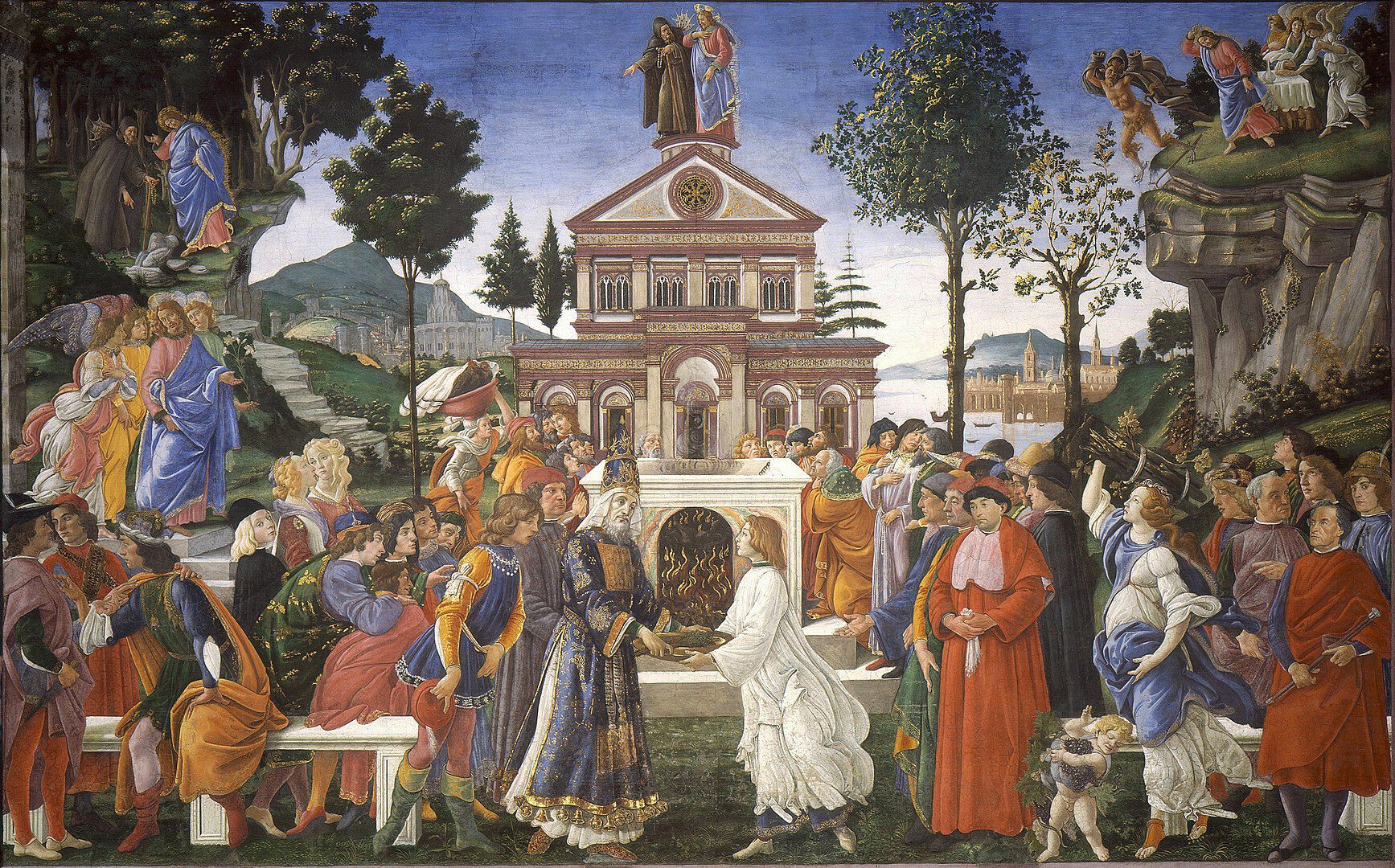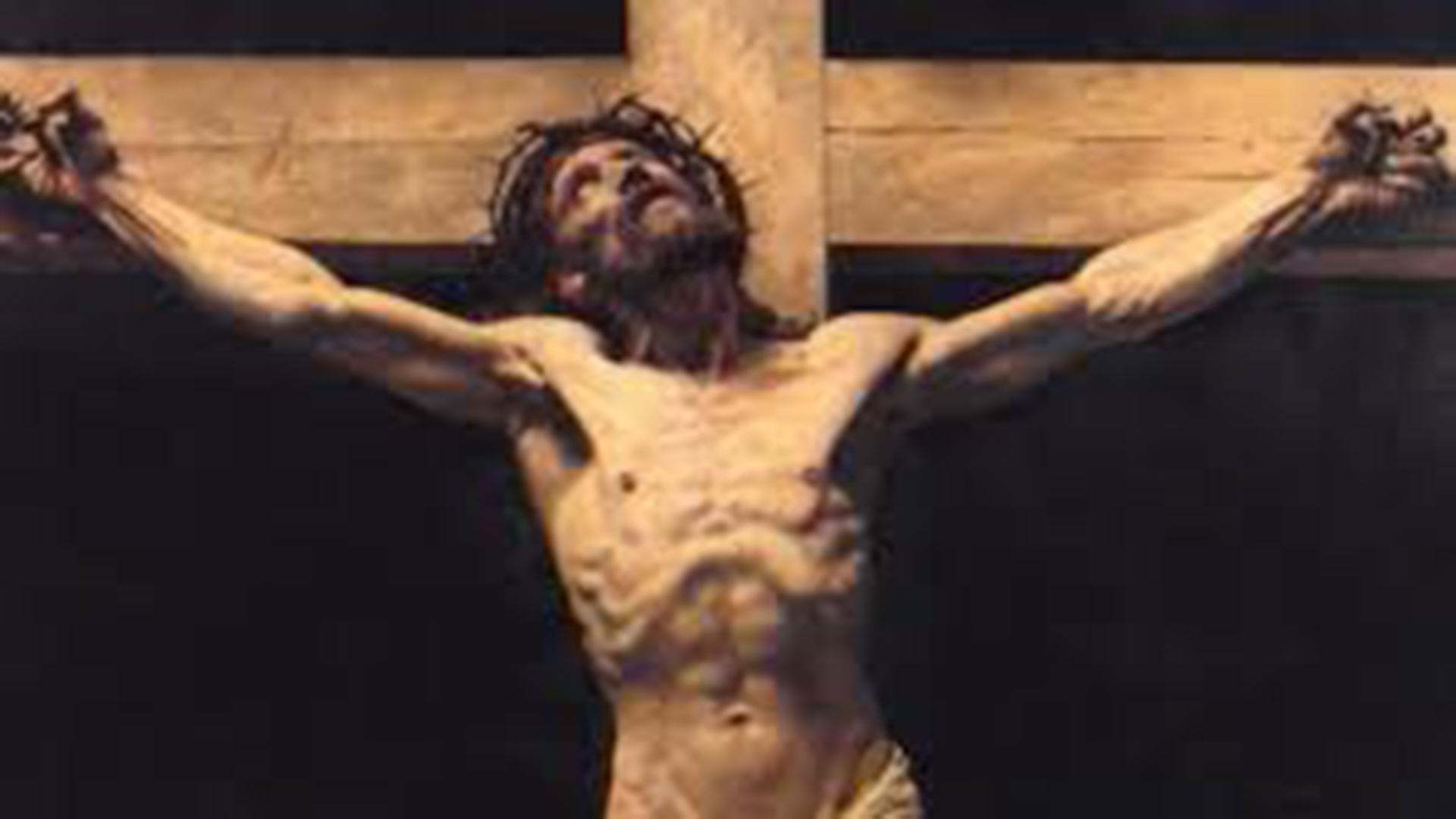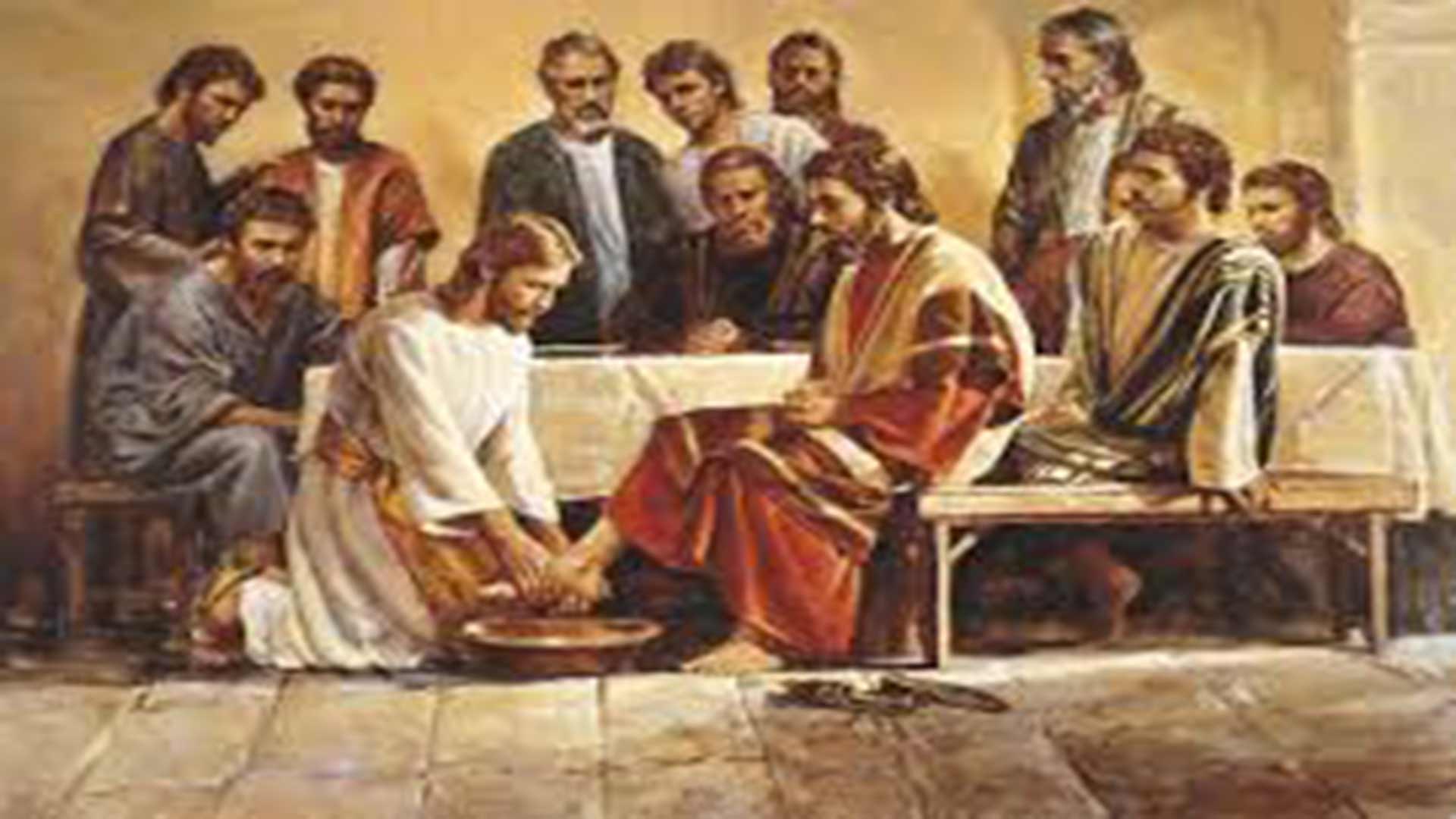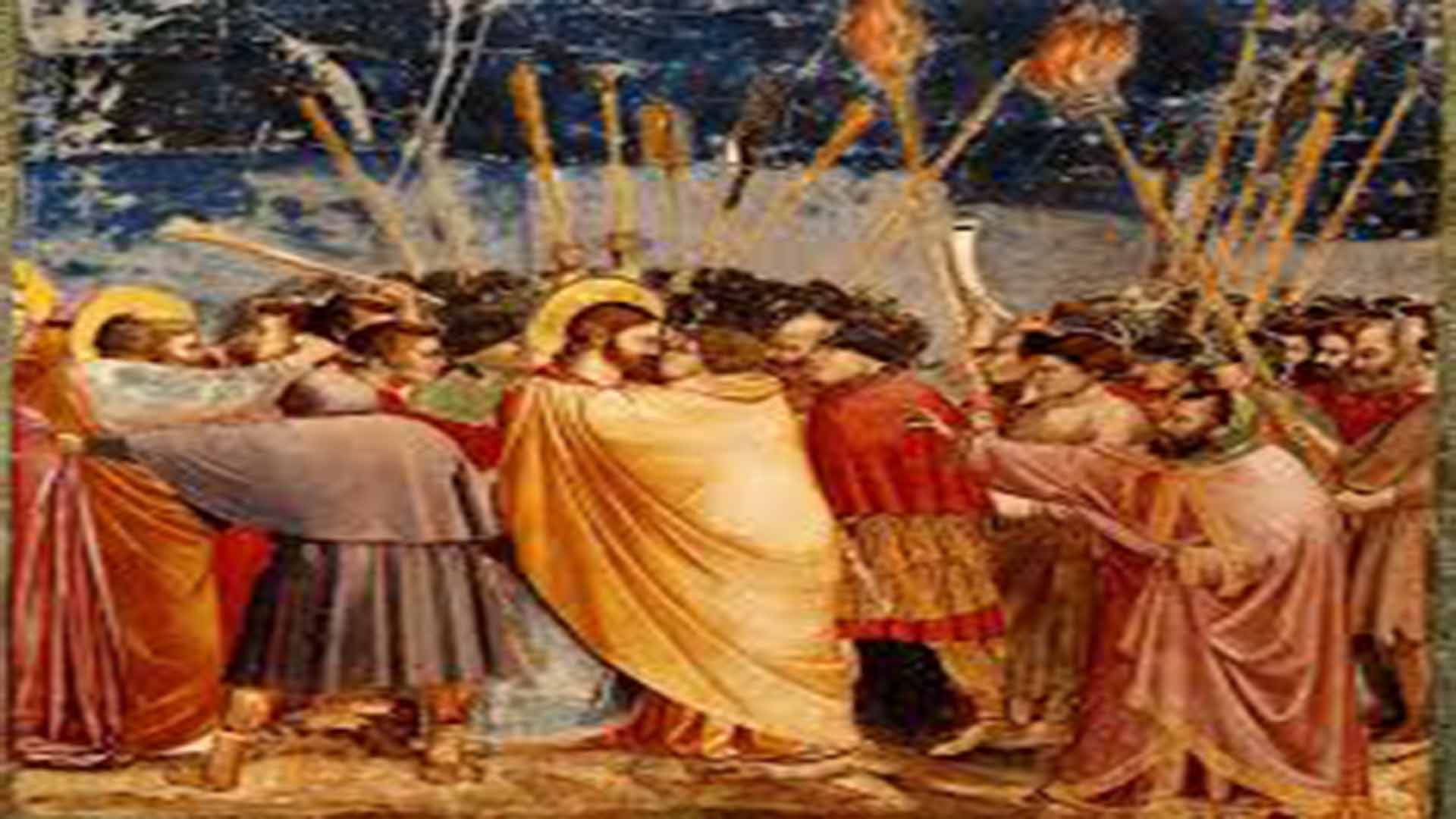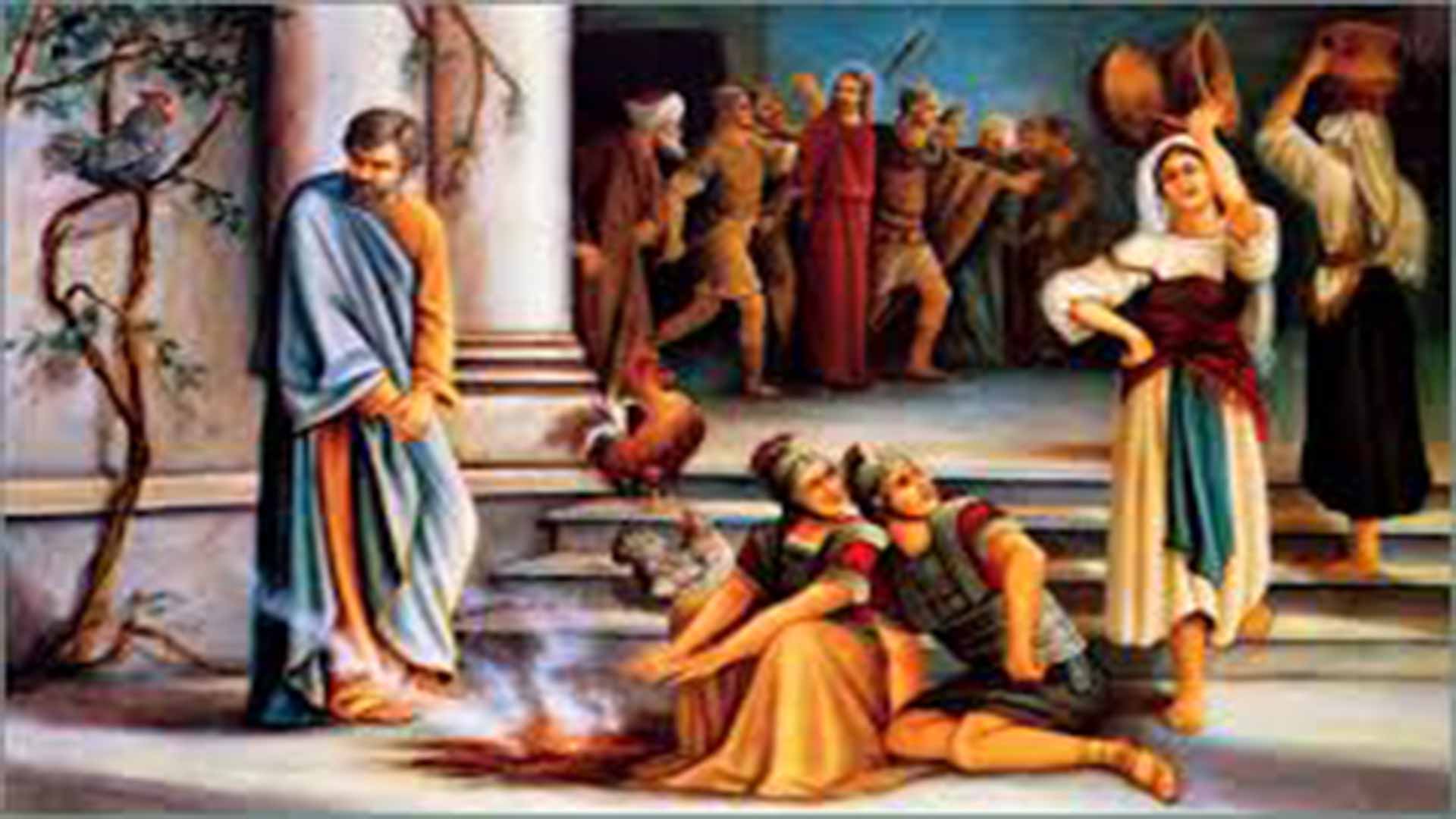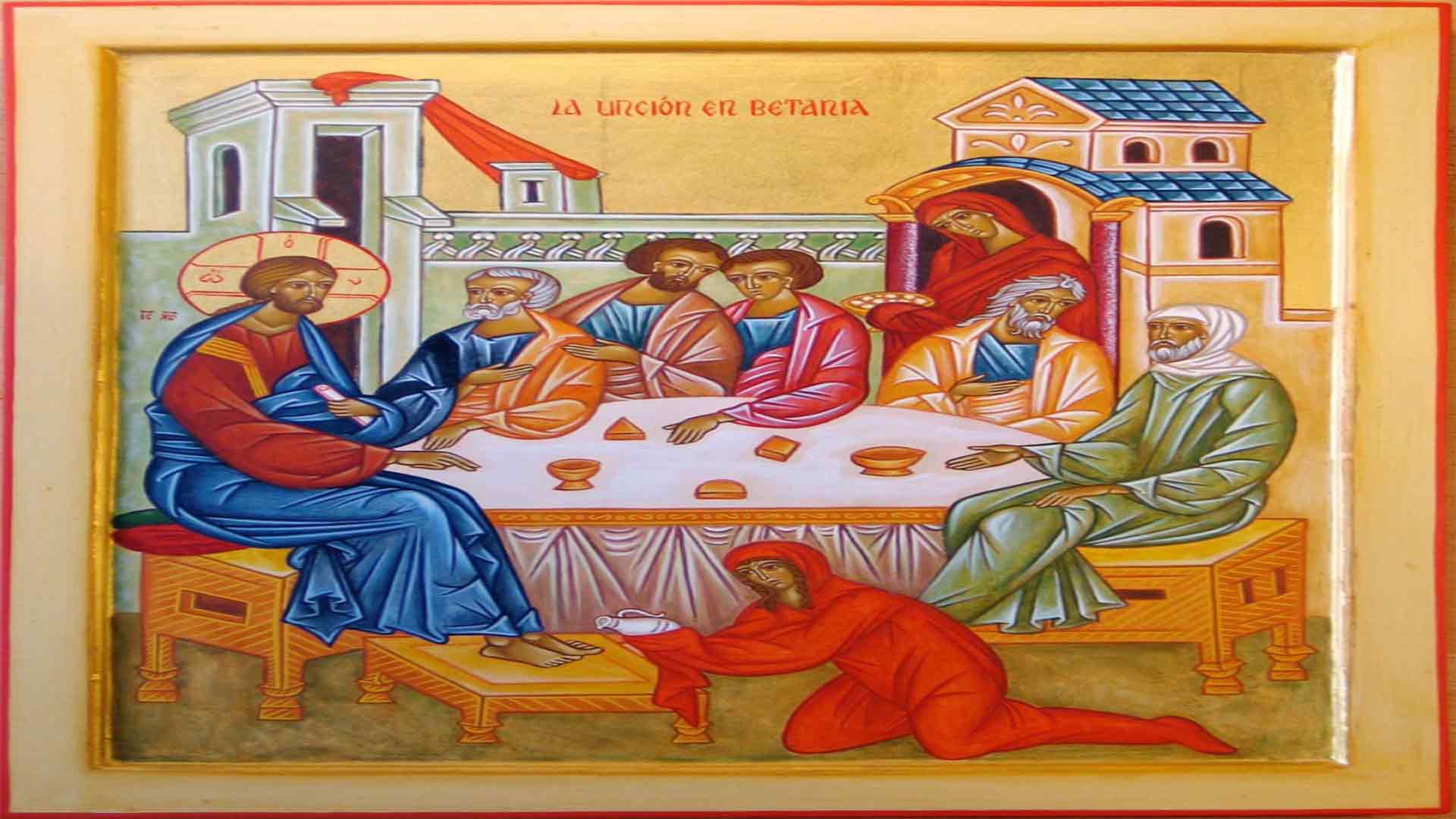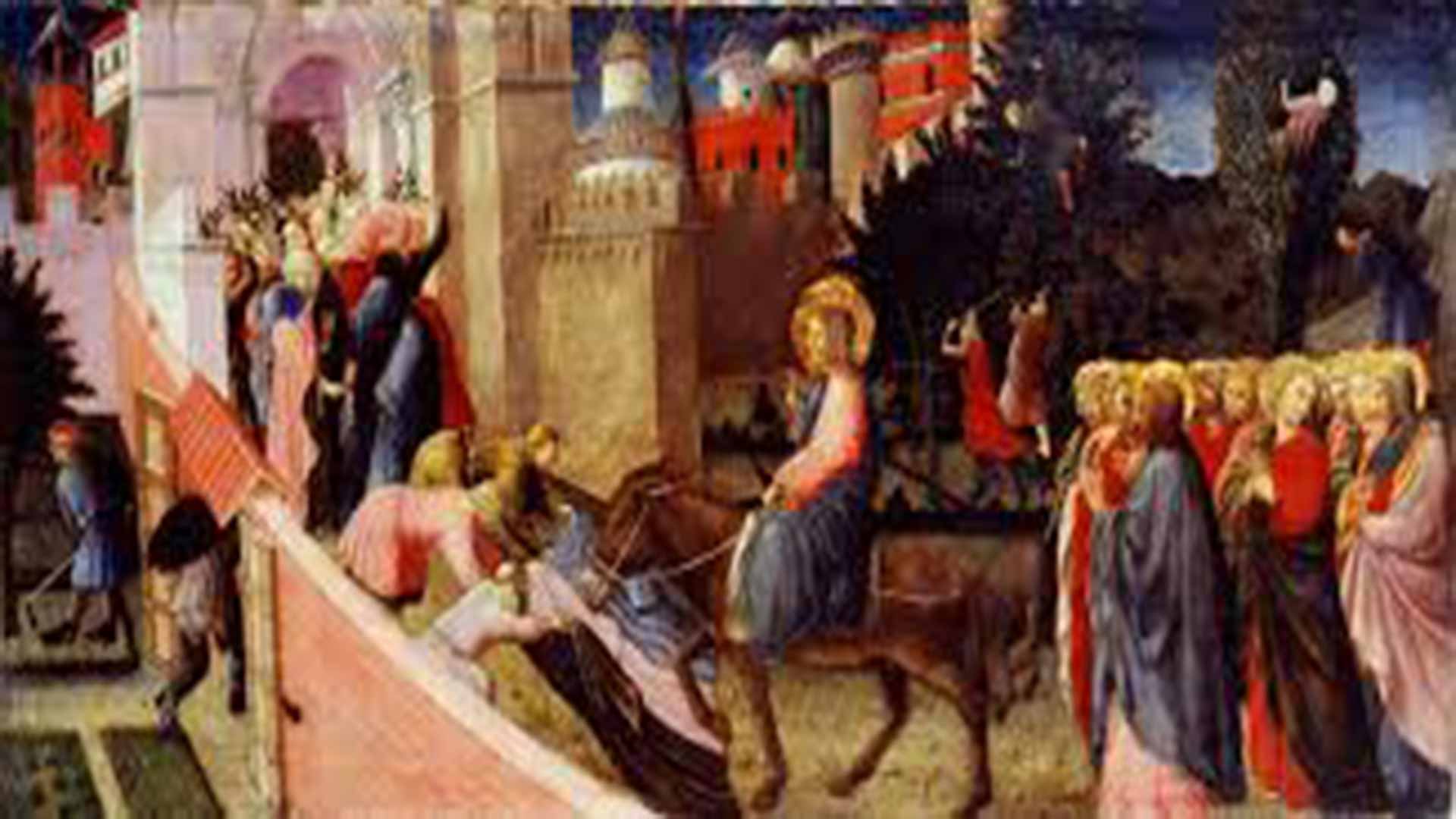The Suffering Servant
Today is Palm Sunday. The day begins with the blessing of palms with holy water outside the church building. The Gospel read here is from St Matthew (21: 1-11) in Year A, St Mark (11: 1-10) or St John (12: 12-16) in Year B, and St Luke (19: 28-40) in Year C. The priest then leads the congregation in a festive procession into the church, celebrating Our Lord’s messianic entry into Jerusalem.
However, at the Mass soon thereafter, the mood changes from joyful to sombre, marking the beginning of the Holy Week. While the first two Readings and the psalm – Is 50: 4-7; Ps 21: 8-9, 17, 18a, 19-20, 23-24; Phil 2: 6-11 – remain the same for cycles A, B and C, the Gospel changes from year to year, highlighting the three Synoptics: St Matthew (26: 14-27, 66), St Mark (14: 1-15, 47), and St Luke (22: 14-23, 56), respectively. They account for happenings going from the Last Supper up to the Death of Jesus.
St John is thus the only evangelist whose Gospel is not read at this Mass. The Beloved Disciple – who offers a unique perspective on the Divine Master, more theological and mystical – is very especially reserved for Maundy Thursday (Jn 13: 1-15) and Good Friday (Jn 18: 1-19, 42), besides two weekday readings. While the Gospel on Thursday focusses on the Last Supper, on Friday we hear a Passion narrative that begins with Gethsemane and ends with Our Lord’s Death on the Cross.
Coming now to the three Readings of today: in the First Reading (Is 50: 4-7), who is Isaiah talking about? He could well be referring to himself or to an archetypal prophet, for all prophets suffered persecution. Better still, Isaiah could be referring to the One who was to come: Jesus the Messiah! Jesus, the Servant of God, was an unparalleled Master, who was nonetheless obedient to the will of His Father in Heaven. Jesus is the model Servant who trusts in God and prevails over His enemies.
That the life of Jesus was a fulfilment of the prophecies of yore becomes clear in the richly textured Gospel passage (Mt 26: 14-27, 66) on the Passion of Christ. The text comprises Jesus’ scandalous betrayal by Judas Iscariot, as foretold at the memorable Passover meal; His moments of intense prayer on the Mount of Olives; His acts of extreme goodness even when His soul was sorrowful to death; His unlawful arrest and summary trial by the high priest; His shameful denial thrice over by Peter; His monstrous condemnation by Pilate; His distressful way to Calvary; His crucifixion, death, and burial.
St Paul in the Second Reading (Phil 2: 6-11) points to the humility of Jesus. He who was fully divine willingly became fully human; He who was “in the form of God did not count equality with God (…) but emptied Himself, taking the form of a servant, being born in the likeness of men.” His total obedience led to His humiliation, but which in turn engendered His exaltation. God gave him a name “which is above every name, that at the name of Jesus every knee should bow (…) and every tongue confess that Jesus Christ is Lord, to the glory of God the Father.”
None who have carefully listened to the three readings of today will remain unmoved. May this Holy Week cause us to reflect on the human condition and our divine commitment. Some of Our Lord’s sufferings are today inflicted upon His Living Body, the Church; some of them are perpetrated by us from within. God might sometimes allow our humiliation and suffering, but never our annihilation; our faith, hope and trust in God’s protection will ensure our final exaltation. May the story of Jesus Christ, the Suffering Servant, and His supreme love for humanity bring about our conversion and sanctification.
Transfigured by the Cross
After God created man in His image and likeness, He always dialogued with humankind. But alas, the dialogue was soon interrupted by Original Sin; to resume it, God chose Abram, who thus became the first of the Hebrew patriarchs.
Abram, trusting solely in God’s Word, left his hearth and home in Ur, Mesopotamia, and walked into the unknown, to a place later identified as Canaan. The Lord had promised Abram: “I will make of you a great nation, and I will bless you, and make your name great, so that you will be a blessing (…) and by you all the families of the earth will bless themselves.” That is how Abram (meaning ‘God is exalted’) became Abraham (‘Father of many nations’).
The Jewish people are descendants of Isaac, son of Abraham and Sarah, and the genealogy of Jesus is traced to him. But equally pertinent is the fact that Abraham’s near-sacrifice of Isaac foreshadows Jesus’ sacrifice on the Cross. So much for the relevance of today’s First Reading (Gen 12: 1-4) to the season of Lent.
In the Gospel (Mt 17: 1-9) we note that the apostles Peter, James and John had a prevision of the Resurrected Lord. Jesus was “transfigured before them, and His face shone like the sun, and His garments became white as light.” And as though this were not enough, “there appeared before them Moses and Elijah [central Prophets of the Old Testament], talking with Him.”
At that point, Peter, as if to continue savouring the ambience, wished to stay put on Mount Tabor, but he was shaken out of his comfort zone when “a bright cloud overshadowed them, and a voice from the cloud said, ‘This is My beloved Son, with whom I am well pleased; listen to Him.’” The apostles, who were filled with awe, fell on their faces. Jesus bade them to rise and not fear. And just as they had an insight into the Lord’s divinity, even if no inkling into His mission on earth, they also felt emboldened to follow Him.
Their experience was brief but marvellous. Jesus wanted His Apostles to treasure its memory and later testify to its truth, for it would be precisely Peter, James and John who would be destined to witness the Agony in Gethsemani! So, “it was fitting that their faith should be fortified beforehand and their eyes illumined by the effulgence of the Godhead.”[1]
To what extent are you and I fortified – transfigured – by learning of the apostles' experience? Or, do we, like Peter, only wish to feel good and dream of happy days to come? The Transfiguration was – and will always be – a sign that Christ’s mission does not lend itself to trivialisation. Also, we must be conscious of our special mission as Christians, and never feel disheartened or tempted to give up. When we look around us and see people wallow in sin, we ought to see how their happiness is only a mirage.
On the other hand, those who have chosen the narrow part are the fortunate ones, for they are continually transfigured. Jesus had instructed the Apostles to “tell no one the vision, until the Son of Man is raised from the dead.” He indeed rose from the dead; and today, it behoves us to testify with conviction. But St Paul (2 Tim 1: 8-10) says that we have to also “take [our] share of suffering for the Gospel in the power of God who saved us and called us with a holy calling (…) and brought life and immortality to light through the Gospel.”
We can never thank God enough for our holy vocation. Being inheritors of an exalted tradition of faith in action, we are duty-bound to come out and call the world’s bluff. It is high time the world realised that by drawing back from the Cross it is in fact at cross-purposes with God’s loving plan of salvation. For our part, therefore, let us move forward decidedly and be transfigured by the Cross.
Banner: P. P. Ruben’s Transfiguration of Christ
https://www.ecwausa.org/the-transfiguration-of-jesus-in-matthew-17/
[1] Abbé C. Fouard, Jesus Christ the Son of God (Goa: Don Bosco, 1960), p. 263.
From Trials to Triumph
Today’s readings rewind to the creation of the human race and come back to where we stand today. They invite us to renew our faith in Him who sent His Only Son to save the world from the havoc caused by our first parents. The texts are cathartic, to say the least.
The First Reading (Gen 2: 7-9; 3: 1-7) speaks of the Garden of Eden, where it all began. If it wasn’t for Original Sin, the history of humankind would have been different, you may say. But then, why think only of the negative side of the Fall? God, who churns out good from just anything, tweaked it in our favour. Felix culpa, therefore, “O happy fault that earned for us so great, so glorious a Redeemer,” as the Exsultet (Paschal Vigil Mass hymn) chants.
In the Second Reading, St Paul (Rom 5: 12-19) gives a striking description of how “sin came into the world through one man and death through sin, and so death spread to all men because all men sinned.” Further, “if, because of one man’s trespass, death reigned through that one man, much more will those who receive the abundance of grace and the free gift of righteousness reign in life through the one man, Jesus Christ.”
In the Gospel (Mt 4: 1-11), Jesus, the New Adam, reverses the wrong that Adam committed in the Garden of Eden. And behold the spirit and substance of the Son of Man: whereas Adam feasted and fell, Jesus fasted and did not fall. Jesus in the desert represents the new Israel and the new Moses (both of whom spent forty years there) and the new Elijah (forty days). And what a pearl of wisdom He presents when tempted in His human state, by the devil: “Man does not live by bread alone, but by every word that proceeds from the mouth of God”. This has since become the one invigorating thought for when we are tempted by power, knowledge and riches that the world deceptively offers.
Humankind, marked by sin from the very inception, is now at the crossroads. We have taken God for granted; and, missing the point of his goodness, we have taken liberties. Having almost lost the sense of sin we are at a loss to know how to regain our innocence and obtain divine grace. Only to those with a pang of conscience, life feels like a combat, a minute-to-minute battle between the forces of good and evil, grace and sin, God and Satan.
How long can we continue thus? Life is short and unpredictable. Let us be steadfast in God’s love, embrace the Cross and experience God’s mercy. Let us not be disheartened, for if Jesus had to experience umpteen trials and temptations, why won’t we? But then, like Him, we too shall triumph over sin and see the light of the Resurrection.
Banner: Sandro Botticelli's Temptations of Christ, Sistine Chapel (1480-82)
Has our Lenten spirit slackened?
Is the deletion of Passiontide from the liturgical calendar a sign that our Lenten spirit has slackened? Do we therefore need to step up our acts and symbols to drive its point home?
The fifth Sunday of Lent was traditionally called ‘Passion Sunday’, marking the beginning of ‘Passiontide’. During this two-week long period, which comprised the ‘first’ and ‘second’ Passion Sundays, the Church would intensify her preparations for the Holy Triduum and Easter celebrations. However, with the liturgical reforms of the Second Vatican Council, ‘Passion Sunday’ was practically done away with; the name is, at best, second to the official designation ‘Palm Sunday’, which marks the beginning of Holy Week.
Thus, not only Passiontide as a distinct liturgical season within Lent but, eventually, even the term ‘Passion Sunday’ came to be abolished. This was done ostensibly because the notion of the Passion, that is, the suffering and death of Jesus Christ, is already contained within the forty days of Lent. It was also thought to be potentially confusing and distracting to have a season within a season.
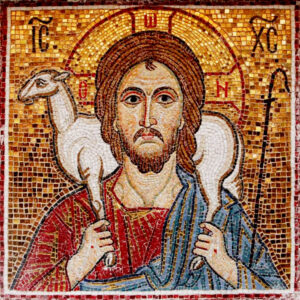 Critics of the abolition, however, point out that such an approach is not consistent across the 1970 Roman Missal, for instance, at Advent.[1] They also opine that ‘the overly-rationalist logic of the [post-Vatican liturgical] reform came up against the traditional piety and practice of the Church.’[2] Even so, from Monday of the fifth week of Lent onward, the Church tries to preserve the liturgical and devotional intensity of the old Passiontide through liturgy, hymns and rubrics, but refrains from explicitly stating so.
Critics of the abolition, however, point out that such an approach is not consistent across the 1970 Roman Missal, for instance, at Advent.[1] They also opine that ‘the overly-rationalist logic of the [post-Vatican liturgical] reform came up against the traditional piety and practice of the Church.’[2] Even so, from Monday of the fifth week of Lent onward, the Church tries to preserve the liturgical and devotional intensity of the old Passiontide through liturgy, hymns and rubrics, but refrains from explicitly stating so.
This goes to prove that there is an unstated need for intensification of the Lenten fervour over a period longer than just a week. Earlier, the most obvious example of a more sombre mood was the veiling of statues and images, which remains an optional practice in the current Roman Missal. Another was the feast of the Seven Sorrows of the Blessed Virgin Mary on the first Friday of the Passiontide, now transferred to September. Various other practices occurred during the final two weeks of Lent, such as Stations of the Cross and the Tenebrae services. In short, Passiontide was meant to be a special penitential period where the faithful focussed more intensely on Jesus’ bitter passion and fostered in us sorrow for our sins.[3]
Meanwhile, the traditional Roman Missal (as well as several other Christian denominations) observes this special time in the Church’s calendar quite austerely. It is one of the many treasures of the traditional rite that can be regarded as a feast for the soul; their solemnity, beauty, and spiritual benefits are undeniable. As part of the ongoing reassessment of the liturgical reforms, Pope Benedict XVI, himself an architect of Vatican Council II, states:
‘In the history of the liturgy there is growth and progress, but no rupture. What earlier generations held as sacred, remains sacred and great for us too, and it cannot be all of a sudden entirely forbidden or even considered harmful. It behoves all of us to preserve the riches which have developed in the Church’s faith and prayer, and to give them their proper place.’[4]
In times gone by, civil law would unite with Church law to ensure that the faithful understood and gave due importance to Lent. Today, the secular world unites with watered-down ecclesial practices, wittingly or unwittingly making sure that only a few consciously live through Lent. Our bustling lifestyles and the dazzling city lights conspire to dish out utterly Godless experiences that leave us morally and spiritually crushed – ‘snuffed out like a wick’.
But let us not be disheartened. Let us devise a Lenten routine that will advance our individual and collective spiritual growth through spiritual reading, appropriate music, meditation, prayer, confession, the Holy Eucharist, fasting and almsgiving. Let not the Passiontide ebb within us. And then, in a couple of weeks, when we look back on how we had let the austerity of Lent wage war on our sensual appetites, we will surely feel a regeneration of body and soul, and what is more, witness the birth of an authentic joy with which to welcome the feast of Easter.
[1] Special Mass propers were assigned to the last few days of Advent (17th-24th December), to give extra emphasis to the end of this season and assist the faithful to prepare for the celebration of the Lord’s first coming. Clearly, the Council did not think this extra emphasis affected the unity of Advent, or could have been confusing for the faithful. Why, then, did they think that keeping Passiontide would affect the unity of Lent or be confusing? Cf. https://rorate-caeli.blogspot.com/2021/03/the-fate-of-passiontide-in-post-vatican.html Accessed 2 April 2022
[2] https://rorate-caeli.blogspot.com/2021/03/the-fate-of-passiontide-in-post-vatican.html Accessed 2 April 2022
[3] https://aleteia.org/2017/03/30/what-is-passiontide/
[4] Benedict XVI, Letter on the occasion of the publication of the Apostolic Letter “motu proprio data” Summorum Pontificum, on the use of the Roman liturgy prior to the Reform of 1970. 7th July 2007 (http://www.vatican.va/content/benedict-xvi/en/letters/2007/documents/hf_ben-xvi_let_20070707_lettera-vescovi.html) Accessed 2 April 2022
[Banner: Dreamstime.com]
Never again, my Lord!
LENT 2020 – Day 45
Readings: Is 52: 13-53, 12; Ps 30: 2.6, 12 13, 15-16 17.25; Heb 4: 14-16, 5.7-9; Jn 18: 1-9, 42
Isn’t it amazing that the saga of Jesus Christ was charted eight centuries before the coming of the Messiah? In the fourth Servant Song, Prophet Isaiah speaks of the One who God would choose to free His people from oppression. He would carry out His mission as Servant of God, in humility and pain. He would teach but they would despise and reject Him. With His appearance marred beyond human semblance, this man of sorrows would carry our sorrows. He would be wounded not for His sins but for ours; He would do no violence nor show deceit, yet He would be punished; He would not utter a word but let Himself be taken like a lamb to the slaughter. The punishment He would bear would heal humankind, and God would exalt and lift up the Servant.
St John the Evangelist, the favourite disciple of Jesus who most closely lived His Passion, captured it all so vividly. The Son of God was indeed despised and rejected, denied by one of His own, Peter the Rock, and betrayed by another, Judas Iscariot. As this was also the theme of the Gospel according to St Matthew on Passion Sunday, today let’s focus on the crux of Good Friday: the unfair trial of our Lord which led to His death.
The Jewish authorities put forth religious motives justifying the death of Jesus. However, the Jewish leaders had powers to impose only flogging and prison, not death. By making Jesus look like a political conspirator, they took Him to Pontius Pilate, the Roman governor of Judea. It was a flimsy accusation, Pilate learnt, yet he told the people to judge Him according to their law. He proved an ineffectual, vacillating man. Even after Jesus clarified that His kingship was not of this world, Pilate lacked the courage to face the crowd whom the Sanhedrin chiefs had instigated. The Messiah touched a raw nerve in Pilate when he said, “I have come into the world to bear witness to the truth.”
Then, perhaps in jest, Pilate famously said, “What is truth?’ His own rhetoric shook him out of his complacency at least temporarily. He went out to the Jews again and told them, “I find no crime in Him.” But soon thereafter this weak and pliable judge washed his hands off the gross injustice that the mob wanted to mete out to the most just man on earth. He consented to HIs crucifixion, as demanded by the rabble outside his palace. Through all of this the only act to which Pilate did not bend was to change the title “King of the Jews” that he had already put down. Thus, unwittingly, he who had earlier said, “So you are a king?” now crowned Jesus who had then answered, “You say that I am a king.”
We see that Pilate who had power to save Jesus proved powerless, simply because he wanted to save his skin. And so did the chief priests: didn’t they bend over backwards when they said, “We have no king but Caesar”? While they showed their true colours, suffering did not overwhelm Jesus. Very dignified, He went ahead to meet His death. And when He reached the appointed place and hour, one of the crucified criminals, with a humble and repentant heart, did what the learned and vicious of Jewish society did not have the gumption to do, that is, acknowledge that Jesus is God.
In this picture of desolation, three Marys stood at the foot of the Cross: Mary, the mother of Jesus, and his mother’s sister, Mary the wife of Copas, and Mary Magdalene. Women, the less powerful and voiceless in Jewish society, comforted Jesus every step of the painful way to Calvary. We also know that the meek and simple Simon of Cyrene shared the burden of the Cross for a while, and finally an old and secret disciple Joseph of Arimathea took charge of the body of Jesus and laid it in an absolutely new tomb.
St John’s Gospel passage should convince us that this was the most unfair trial in history. Injustice was meted out to the long-awaited Messiah. About this we have to be thoroughly convinced and refrain from being unfair to Jesus in our daily lives. Aren’t He and the Church often detested because they bear witness to the truth? And what do we do? We remain in our own comfort zones and wash our hands of it like Pilate. Isn’t our Lord mocked at and His laws struck down? And what do we do? We let Judases, Caiaphases and Pilates walk free and even rule over us.
Well, every time we fail to fearlessly defend Our Lord, we let Calvary be real in our own lives. But never again, my Lord! We who’ve been waiting for the Messiah for millennia now must say, Never again! He will soon rise from the dead and walk into our lives if we let Him do so. He is our high priest who can sympathise with our weaknesses. Let us with confidence, then, as St Paul’s exhorts us, “draw near to the throne of grace, that we may receive mercy and find grace to help in time of need.”
The Lord calls us to love one another
LENT 2020 – Day 44
Readings: Ex 12: 1-8, 11-14; Ps 115: 12-13, 15-16, 17-18; Cor 11: 23-26; Jn 13: 1-15
Maundy Thursday is the first day of the Easter Triduum. The readings of the Mass of the Lord’s Supper form a bridge between the historic liberation of the Israelites from slavery in Egypt and the final liberation of the world from the bondage of sin.
The reading from the Book of Exodus points to the origin of Israel as God’s Chosen People. The Lord commands that this month be the first of the year, in commemoration of the beginning of their liberation. He ordains on how to observe the Paschal rituals. These foster a feeling of religious community through the sharing of the paschal lamb. The staining of doorposts with blood of the expiatory lamb is the stamp of the divine that wards off all evil. Unleavened bread eaten in haste accompanied by bitter herbs is a symbol of the suffering from which the Israelites had fled.
When the twelve Apostles celebrated the Passover with their Master, they followed the traditional rite evoking the old covenants. It was also a thanksgiving for God’s many interventions to rescue the Israelites. What the Apostles did not realize, however, was that the Last Supper marked a new beginning. Jesus had anticipated Calvary where He would be presenting Himself as the paschal lamb, the Lamb of God. He did so mysteriously, by converting bread and wine into His Body and Blood. The Son of God made this supreme act of love so as to redeem the sins of humankind. The Holy Mass thus established became the bloodless Sacrifice of the New Covenant.
The Eucharist is a masterpiece of Jesus’ love, the best proof of His love for humankind. He made the Apostles participants in His Priesthood and ordained them to carry out that mystery. He gave them responsibilities and authority: to bind and loose in His name, to forgive sins, to transform the bread and wine into His Body and Blood. This the ordained priesthood would do infinite times, until the Lord’s return to the world. Their role is vital in helping the faithful to carry out their baptismal priesthood.
There was no better occasion than the Last Supper for the Lord to command His followers to love one another. He said, “A new commandment I give unto you, that ye love one another; as I have loved you, that ye also love one another. By this shall all men know that ye are my disciples, if ye have love one to another.” (Jn 13: 34-35) This new commandment is a summary of all of God's law and brings about the definitive liberation.
Speaking to the first Christians, St Paul reiterated that this liberation emerged when the Paschal Lamb, who is the Christ, was sacrificed. Given that we Christians aren’t always united in love, we must take seriously the reminder from the Apostle of the Gentiles: that the Eucharist and the Church – the Sacramental Body and the Mystical Body – are intimately connected. We should place ourselves at the service of our brethren, in humility and love, of which the washing of the Apostles’ feet by our Lord is emblematic. A Eucharist celebrated amidst division cannot be a sign that we are followers of Christ.
The time to be a person of integrity is now
LENT 2020 – Day 43
Readings: Is 50: 4-9a; Ps 68: 8-10, 21-22, 31.33-34; Mt 26: 14-25
The first reading from the Book of Isaiah is practically the same as that of Palm or Passion Sunday. Isaiah talks of his prophetic mission: of how the Lord spoke to him and how he went ahead with faith and courage. He accepted suffering with patience, always expecting the Lord’s help at the right moment.
Suffering is not always physical; very often it is of the moral order. This leads us to sever ties with unprincipled persons, which may even include family and friends. But can any suffering – physical or moral – be worse than what the Lord endured? No. We could therefore consider even our little troubles as our sharing in the Lord’s Cross.
The Gospel passage, which is just a tiny extract from the Sunday text, focuses on Judas’ betrayal which caused moral and physical suffering to the Lord. The place of action was the Passover meal that the disciples had prepared in accordance with instructions from their Master. As they were at the table Jesus saw the movement of His disciples’ hearts. Our Lord first saw the dishonourable act that Judas was going to perpetrate; He saw it even before the consummated the deal with the chief priest.
St Matthew tells us that after Judas had dipped his hand in the dish with Jesus, Satan entered the apostle’s heart. What Judas had actually envisioned only he and God know! Perhaps used to seeing things through the prism of money, here was an occasion to make a fast buck. But did he foresee the serious consequence of his action? Maybe he did. Or maybe he didn’t, for later he wished to retrace his steps. But it was too late to change.
We may not be at the level of the proverbial Judas but we too have failed our Lord. Even if we don’t commit a serious crime, abetment is bad enough. But knowing human nature, God instituted the sacrament of Confession, whereby we can reconcile ourselves to God and win back His grace and favour.
Getting to know Judas’ act at close quarters is surely a traumatic experience. It is a supreme lesson on one of the most painful experiences that one might experience in life. Betrayal often begins with small things: lies, compromises and opportunistic behaviour. If left unchecked by self, parents or other authorities, it grows into unfaithfulness in great things, or what we commonly dub back-stabbing. Lack of integrity that begins with the individual can infect an entire society. Thus public men in a Godless society soon become unprincipled and corrupt.
In all that we do, let’s strive towards the greatest level of integrity: loyalty and faithfulness to God and neighbour. “Whatever is true, whatever is honourable, whatever is just, whatever is pure, whatever is lovely, whatever is gracious, if there is any excellence, if there is anything worthy of praise, think about these things,” says St Paul in his letter to the Philippians (4: 8). This is sure to promote a welcome sweetness and an integrity that is pleasing to God by whom we are called into the fellowship of his Son, Jesus Christ our Lord (1 Cor 1: 9).
By His side, in His darkest hour
LENT 2020 – Day 42
Readings: Is 49: 1-6; Ps 70: 1-2, 3-4, 5-6, 15-17; Jn 13: 21-33, 36-38
The text of Isaiah’s second servant song speaks of his prophetic mission assigned by the Lord God. He has a message of great import for Israel: the Chosen People are to return to the right path and fulfil their vocation as light to the nations. Holding them in high regard, the Lord God urged them to accept and then take His message of salvation to the ends of the world.
Was it a tall order? Maybe it was, but then they could always rest assured of the Lord’s help. They had only to ask with expectant faith and success would be theirs. The Lord is always our refuge, our justice; He pays heed and saves us. The Lord is our rock, a mighty stronghold. He is our hope, our trust, our help. Every person that has tasted of the Lord’s generous hand will tell of His justice, of his help; his heart will overflow with the Lord’s teachings and His mighty wonders.
What, then, was the problem with Israel? Theirs was indeed a long and sad story. They failed to appreciate the marvels and settled on trinkets. Busy with their petty lives, by and by they forgot the Lord God. They set aside the covenants and began to do their own thing. Their lack of earnestness in God’s things soon gave way to flouting His commandments. The Israelites had long taken the Lord for granted, and they finally paid the price.
Let’s face it. They betrayed the Lord… much as we do when we feign ignorance of our religious duties or are busy with our other duties. We do so because it suits us at that moment. But then, it’s not God who needs us; we need God. He is infinitely powerful and all is grist that comes to His mill. When Judas leaves the scene, Jesus talks freely to His reduced but true flock. He waxes eloquent – “Now is the Son of man glorified, and in him God is glorified; if God is glorified in him, God will also glorify him in himself, and glorify him at once.”
Meanwhile, Jesus is in the goodbye mode: He is going back to the Father who will glorify Him very soon. He also has words of encouragement and consolation for the Apostles and for those who thirst for the living water. Not that He has any dreamy notions about men and women: He knows that we are prone to deny Him – like Peter who disowned Him at His most grievous hour. It’s not that He needed Peter; legions of angels could have come to our Lord’s rescue at that moment. It’s just that He wanted Peter to side with Him… But, of course, Jesus knew the difference between Peter’s moment of denial and Judas’ cold-blooded betrayal.
He wants us to be by His side; He wants us the warmth of our presence; Jesus wants us to be there – for Him – in His darkest hour. And why so? So that He can then pay us back a hundredfold, as is His wont… So let’s never forget the love and faithfulness of the Lord and ask for His grace, by saying, “The Lord is my light and my salvation.”
The fragrance of our greatest possession
LENT 2020 – Day 41
Readings: Is 42: 1-7; Ps 26: 1.2.3.13-14; Jn 12: 1-11
The first reading is taken from the first of the four ‘servant songs’ or ‘Songs of the Suffering Servant’. It is not easy to identify the figure: is it the prophet himself, or historical Israel, or the ideal Israel? From the New Testament we know it is Jesus Christ. Its first verse is reminiscent of the voice of the Father at the Baptism of Jesus and the Transfiguration on Mount Tabor. The seventh verse takes us to the Gospel passage in Luke, chapter 4: 18. In this Jesus says that the Father has sent Him to proclaim liberty to captives, sight to the blind, and to let the oppressed go free.
Only a psalm can cap all those wonders, a psalm that is at once a song of praise and thanksgiving: “The Lord is my light and my help… the Lord is the stronghold of my life.” There is therefore nothing to fear; only in Him we should hope. And we continue to see wonders in the countdown to the Lord’s appointed hour on earth. They witness to the Lord’s goodness throughout the week.
The day following the spectacle that was Palm Sunday in Jerusalem, Our Lord stayed in Bethany. He is said to have spent the night at the home of Lazarus. The family probably hosted Him and His disciples through the week. A great multitude of Jews visited Him there, also eager to know the man whom Jesus had raised from the dead.
Those were indeed live-giving encounters. Another happened when Lazarus’ sister Mary proved herself an exceptional hostess to a divine guest. While her sister Martha took care of the daily chores, Mary fell at the feet of Jesus. She took a pound of costly ointment of pure nard and anointed His feet, which she then wiped with her hair.
Did she exceed her role as hostess? Well, nothing is too much for the Lord. She did something that no Jewish woman would dare do: she loosed her hair before Her Lord, thus expressing love and dedication. An eye-opener to all of us who fear to be different, especially when it comes to Godly things…. Aren’t we worried about what others will say and think of us?
But look who took objection to Mary’s magnanimity: none other than Judas Iscariot. The miserable soul that was to sell Our Lord wanted to first sell the ointment, ostensibly to gather money for the poor! Well, the evangelist is very clear: “This he [Judas] said, not that he cared for the poor but because he was a thief, and as he had the money box he used to take what was put into it.” The fact that Jesus despite knowing his base instincts accepted him as a disciple goes to show His concern for the well-being of his soul than for that of the common purse.
Fact is, “he who is faithful in a very little is faithful also in much; and he who is dishonest in a very little is dishonest also in much.” (Lk 16: 10) This fits Judas Iscariot like a glove. And that’s why Jesus soon hints at His death, in which Judas would soon have a dishonourably decisive role to play. “Let her alone,” says He, “let her keep it for the day of my burial.” And He adds: “The poor you will always have with you, but you do not always have me.” Yes, very often the poor are only a ruse; it’s usually ourselves that we are concerned about.
Sometimes don’t we seem greatly concerned about our little possessions and little concerned about our greatest possession in Heaven? Don’t we fall at the feet of our earthly masters but are only too proud to pray to the Lord? Whereas we set our eyes on the temporal, we let the eternal surprise us only at the time our death! Instead, like Mary of Bethany, let's set our hearts not on saving the ointment; with love and gratitude, let's spend everything on the Lord and save our soul.
Our Lord's saga of pain and suffering begins
LENT 2020 – Day 40
Readings: Is 50: 4-7; Ps 21: 8-9, 17, 18a, 19-20, 23-24; Phil 2: 6-11; Mt 26: 14-27, 66
The first two readings are a prologue to our Lord’s saga of pain and suffering described in the Gospel passage. Eight hundred years before Christ, prophet Isaiah anticipated the happenings on Calvary; and a millennium before Him, His ancestor King David wrote the haunting cry that the Christ crucified would utter: “My God, my God, why hast Thou forsaken me?” St Paul highlights the fact that the Son of God speaks here as “a servant, born in the likeness of men.” He underscores the humility and love with which our Lord looked at His earthly mission.
Today is commonly known as “Palm Sunday”. The evangelists have passages fit to commemorate this Sunday. Yet, the overarching theme of our Lord’s Passion takes precedence on this day, alternatively called “Passion Sunday”.
St Matthew portrays more than the story of a single day; he gives an overview of the first six days of the Holy Week. Accordingly, the passage comprises the entry of Jesus into Jerusalem on Sunday; His Passion on Thursday and finally His Death on that fateful Friday. However, in real time, Jesus’ last week on earth was packed with many other events as well. All together they precipitated the final meltdown, which soon became a watershed in world history.
With St Matthew as our guide
Let’s walk with St Matthew to see the places that Jesus visited, and why. Let’s also look at the personages that Jesus encountered on the way. They make up an eloquent portrait gallery in which you and I are sure to meet our human types.
When Jesus entered Jerusalem, He met an ecstatic lot. They spread garments and tree branches on the road, and shouted “Hosanna to the Son of David!” The city was stirred with the visit of “the prophet Jesus from Nazareth of Galilee”. Was this for real? Had Jerusalem accepted Him as their long-awaited Messiah? Well, this sudden switch of sentiments, this picture of innocence and goodness, seemed too good to be true. Thanks to human chemistry, an equal and opposite reaction gets underway in the minds and hearts of others following Jesus’ moves.
If the cheering multitude was naïve in its enthusiasm, so were Jesus’ disciples in their lack of fervour. On Thursday, they simply followed His instructions and arranged the Upper Room to hold their supper. Perhaps to them it was just another yearly feast. Did they understand what Jesus meant by saying that He would meet them again only “in my Father’s kingdom”? Ironically, only Judas Iscariot perhaps did, for he’d already conspired to sell his Lord for thirty pieces of silver.
That Wednesday night Jesus went out to the Mount of Olives to pray. He knew that His time was at hand. And knowing His sheep, too, He foretold that striking the shepherd would scatter them. To them it meant very little. Humans like us, lost in their own preoccupations, Peter, James and John fell asleep at three crucial moments. Curiously, here we see the human facet of Jesus too. Left to fend for Himself, he cried to His Father to let the cup pass if possible.
However, the human side of Jesus was soon superimposed with His superhuman dignity. When the kiss of betrayal brought in the hour, Jesus addressed Judas charitably as “friend”. And when someone cut off the ear of a soldier who had come to arrest Him, Jesus healed him instantly. What might the soldier have felt at that moment? What did he do thereafter: convert or continue his evil doing? We do not know. What we know, meanwhile, is that the disciples, the greatest beneficiaries of the magnanimous Jesus, took to their heels. What would we have done? And what do we do in the circumstances of our life today?
Next we meet old Caiaphas, yet another picture of human viciousness. He entertained a string of false testimonies. Then came the tipping point. Two witnesses reported that Jesus had declared that He could destroy the temple and rebuild it in three days. It no doubt crossed Caiaphas mind that Jesus was the Messiah but he didn't hail Him. Instead, he turned the tables on Him, crying “Blasphemy”, for which death was the punishment.
Jesus was next in the presence of Pilate, the governor. Here was a typical political figure playing to the gallery. He washed his hands and said, “I am innocent of this righteous man’s blood.” Why did he leave it to the populace to decide when he should have called a spade a spade? These are the undecided and/or the unconcerned who do everything only to save their skin…
At the praetorium, the stage was set for the final tragic act. Here we meet mockers. They stripped our Lord, and in disdain hung a scarlet robe over his body and a crown of thorns on his head. For a change, a man called Simon met Jesus as He wended his way to Calvary. Although they ordered him to help Jesus carry the Cross, he most likely did it with a measure of sympathy for the suffering Lord. Can we, like that Cyrenian, offer up our little sufferings as a humble participation in the carrying of the Cross?
At Calvary the ‘good thief’ said a good word to the dying Lord; he instantly merited Paradise. This goes to show that it’s never too late to convert. However, it’s better to be safe rather than sorry; we shouldn’t test God, as did Judas Iscariot, who stupidly lost his life in a shameful death.
After Jesus had died on the Cross, an old disciple, Joseph of Arimathea took charge of His sacred body. He wrapped the body in a clean linen shroud and laid it in his own new tomb. Like him, we too can help out, by rendering our services to the Bride of Christ. After all, the Church, which our Lord rebuilt on the third day, is the best repository of his memory. The Church also holds His three best gifts for humankind: first, the Holy Mass, held there every day as an unbloody enactment of the Holy Sacrifice on Calvary; second, the Priesthood, which He instituted as a sacrament of the New Covenant; and third, the commandment of love, a supreme example of how Jesus perfected the old law.
Our Lord Jesus Christ thus left us an invaluable heritage whereby we can become worthy candidates for eternal salvation. We will thereby vindicate His coming to the world.
